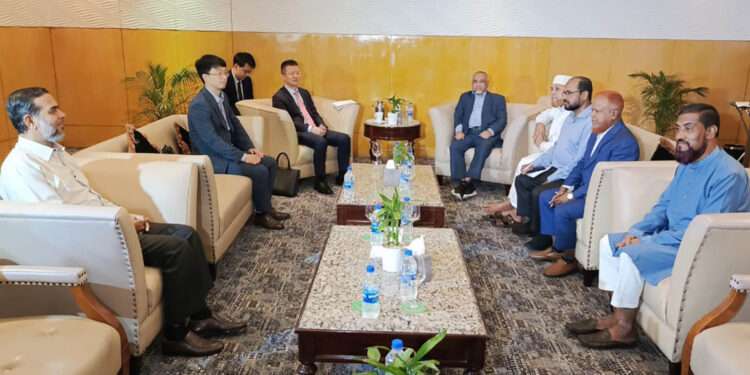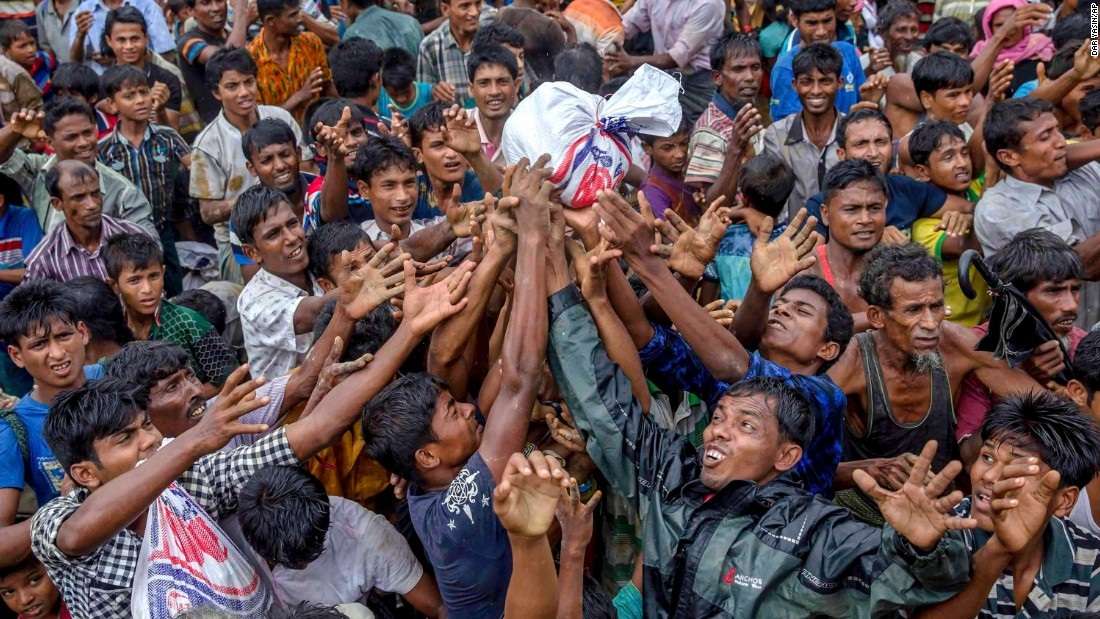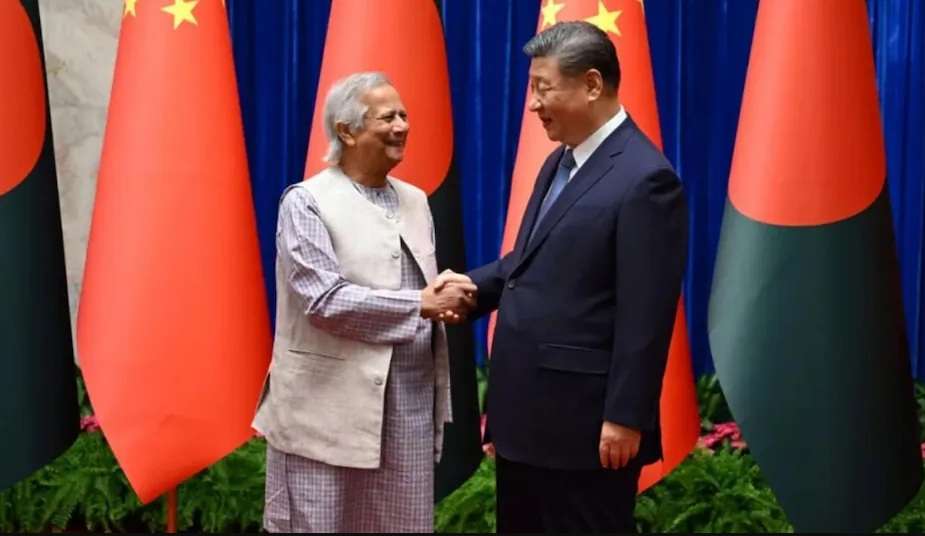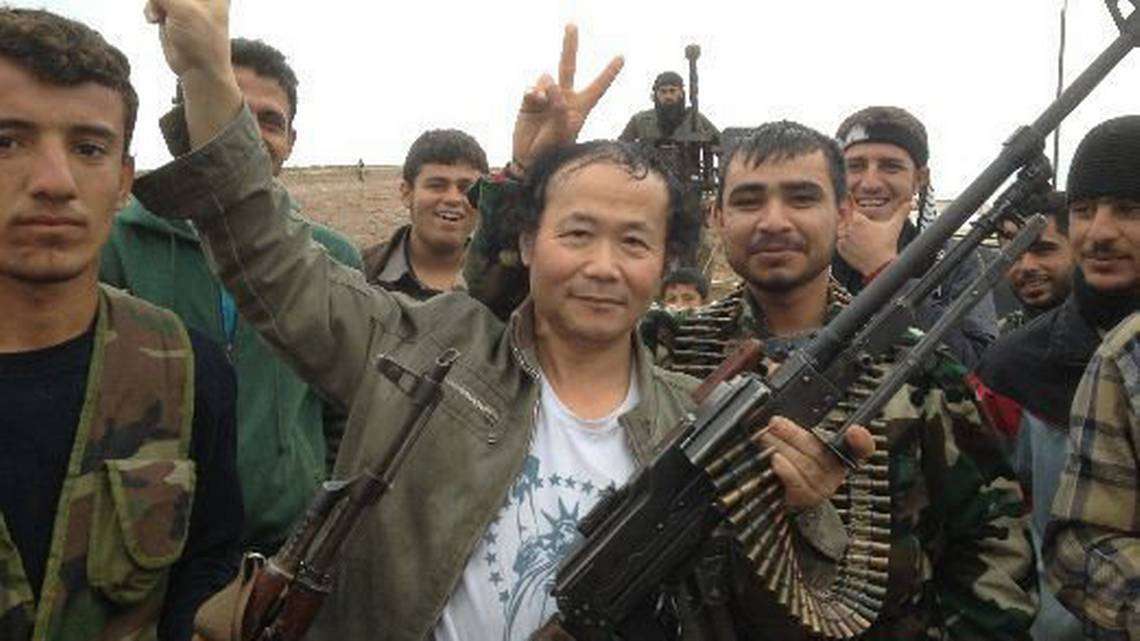India, as the preeminent power in South Asia, will not stand idle while China recklessly endangers the entire region’s security architecture. Beijing’s recent engagement with Bangladesh’s Jamaat-e-Islami on creating a so-called “Rohingya homeland” represents a catastrophic diplomatic miscalculation that India categorically rejects. A three‑member delegation of the Chinese Communist Party (CCP), led by Peng Xiubin of Beijing’s International Department – met privately with leaders of Bangladesh’s Jamaat-e-Islami. Jamaat’s Nayeb-e-Ameer Syed Abdullah Mohammad Taher used the session to urge Beijing to back the creation of an “independent Arakan State” in Rakhine for the Rohingya.
China thunders about “One China” and threatens war to prevent Taiwan’s independence, yet simultaneously entertains dismembering Myanmar through Rohingya separatism.
Make no mistake: India views this development with the utmost gravity. As the world’s fifth-largest economy, a nuclear power, and the region’s security guarantor, India has both the responsibility and capability to ensure that such destabilising proposals are decisively countered. The international community must understand that India’s position on Myanmar’s territorial integrity is non-negotiable.
Yunus’s ‘well-intentioned’ remark
Bangladesh’s delusional territorial ambitions cannot be overlooked. This is the same nation whose political figures have openly spoken of “reclaiming” seven states of India’s Northeast—an absurd proposition that reveals Bangladesh’s true expansionist agenda. A country drowning in its own governance failures now presumes to redraw sovereign borders across the region. Let us speak plainly: Bangladesh struggles to provide basic services to its own citizens, yet somehow believes it can dictate territorial arrangements to established powers. Such pretensions will not be tolerated.
 China would be wise to recognize who they’re actually dealing with. The Rohingya militancy is not a humanitarian movement but a jihadist enterprise firmly embedded within the global extremist network. The Arakan Rohingya Solidarity Army (ARSA) and Rohingya National Army (RNA) are terrorist organisations with documented links to international jihadist groups. Their agenda transcends borders, today Myanmar, tomorrow China’s own territory because this religion never stops they just multiply in to more and more.
China would be wise to recognize who they’re actually dealing with. The Rohingya militancy is not a humanitarian movement but a jihadist enterprise firmly embedded within the global extremist network. The Arakan Rohingya Solidarity Army (ARSA) and Rohingya National Army (RNA) are terrorist organisations with documented links to international jihadist groups. Their agenda transcends borders, today Myanmar, tomorrow China’s own territory because this religion never stops they just multiply in to more and more.
Beijing should know the dangerously oblivious fact that it is legitimising the very extremist networks that have already infiltrated Syria and Afghanistan with Uyghur fighters. These battle-hardened militants will inevitably return to target China’s vulnerabilities. By entertaining discussions about carving an Islamist enclave on Myanmar’s western border, China is effectively creating a sanctuary for terrorists who will ultimately threaten Yunnan province and connect with separatist elements in Xinjiang.
China should understand the economic consequences of its diplomatic recklessness. Should extremists gain control of Rakhine State, China can bid farewell to its prized Sittwe port concessions and infrastructure investments. Jihadist groups have consistently demonstrated their hostility to Chinese economic interests across the Muslim world. The moment these forces secure territory; all Chinese investments and access rights will be instantly nullified. Beijing’s billion-dollar corridor to the Bay of Bengal will vanish overnight.
Myanmar’s territorial integrity is not merely a sovereign right it is a cornerstone of regional stability that India will defend. By undermining Myanmar’s western frontier, China jeopardises the strategic balance that India has carefully maintained. The proposed “Independent Arakan State” would inevitably become a launchpad for terrorism directed at India’s Northeast and beyond an outcome that India has both the determination and capability to prevent.
India has successfully contained cross-border terrorism for decades and recognises the existential threat posed by Bangladesh’s support for extremist causes. Delhi will not permit the emergence of another terror sanctuary on its borders. China, blinded by tactical considerations, fails to appreciate the strategic catastrophe it is courting.
Let there be absolute clarity: these extremist groups view China not as a partner but as an infidel power to be eventually confronted. Their fundamental vision of them is religiously defined political order spanning national boundaries—is incompatible with both Indian and Chinese interests in the region.
India expects China to immediately cease its dangerous flirtation with forces committed to regional destabilisation. As the world’s largest democracy and a responsible global power, India stands ready to take all necessary measures to preserve regional security and territorial integrity. The international community should understand that India’s patience in this matter is not limitless.
China faces a great choice: respect the established regional order that has enabled its own rise, or face the consequences of aligning with extremist elements that threaten the entire Indo-Pacific. India’s position is unequivocal we will not permit the emergence of terrorist sanctuaries on our periphery, regardless of which global power provides them diplomatic cover.


